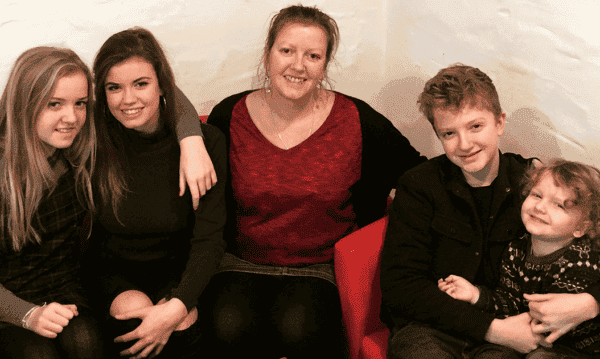I live in rural Wales with three of my four children; all of them were born here. It is a very safe part of the world, and I’m thankful to be tucked away from all the horrific news I see on television.
But when it comes to the Internet, I know that there are plenty of risks just around the corner for my children, aged 19, 16, 13 and just three.
Online safety with my teens
When my eldest daughter started secondary school in 2007, it was all about BEBO and MSN Messenger.
I talked to my daughter about basic online rules – things like not sharing her address or full name, and only connecting with people she knew from school.
With my sons, it was a bit different because they were playing online games rather than social networking. So we talked about how you need to be careful of who you’re talking to, what chat rooms you’re using, and what you’re sharing. Of course, we talked about who they could connect with, using bad language and that sort of thing.
E-safety ground rules
With all the teens we have some ground rules. The console is in the dining room, where we walk through to get to the kitchen, so they don’t initially have Internet access in their rooms. We set a trial period where I monitor their activity and once I’m happy they understand the rules, I have bought them subscriptions and give them more freedom.
Keeping my three year old safe online
With my youngest, it’s all changed again! What I’ve learned from looking at advice on sites like Internet Matters is that it’s important to look at each programme or website children are using, and add the appropriate controls.
For example, my three-year-old loves watching YouTube videos, there are all manner of unwrapping of eggs, unboxing of toys, and toy reviews. He only goes online when I am with him but I also make sure the safe mode is turned on our computer and iPad and that YouTube is set to the family-friendly filters. There’s a new YouTube for Kids app that offers really strict filtering, too. I have just found out how to set filters on our channel for bad language, which is good.
Setting parental controls
For all the children, I have strict parental controls set on my home broadband, which restricts content and certain websites. You can find information on this on your ISP’s website.
This is important because older children will often have their own devices, and friends will bring along devices that may not offer the same filters you would set up yourself.
With mobile phones, you can set limits on what children can access on the web browser, and what age rated apps they can download. Also, giving teens a phone with a limited data allowance means they will tend to be very careful how they use it!
Whatever controls I use, it is a big worry what children can access online. There are the obvious (to me) dangers of seeing pornographic sites and content, drugs and violence, but more of a worry is the content that can be found – quite accidentally on social media. That’s why the most important tip I have is to talk to your children.
Talking to my kids about what they do online
We have spoken at length about the dangers of being online, and one thing the school does do is talk regularly about Internet safety. Talking means I can help them be aware of the risks but also encourage them to enjoy their use of social media, and the Internet.
We talk about making sure that who they are talking to is really the person they say they are, and they are never, ever to meet anyone without any phone or visual contact first.
The Internet Matters website has useful information for parents, it doesn’t just cover the issues and things that you are probably aware of, it also covers up to date online problems that you might not have heard of.
My main e-safety tip
The main tip I would share with other parents is to keep communication open. Talk and more importantly, listen to your children.
Visit a site such as Internet Matters as a point of resource to help you understand, why not visit the site with your teens so you can both learn together.





